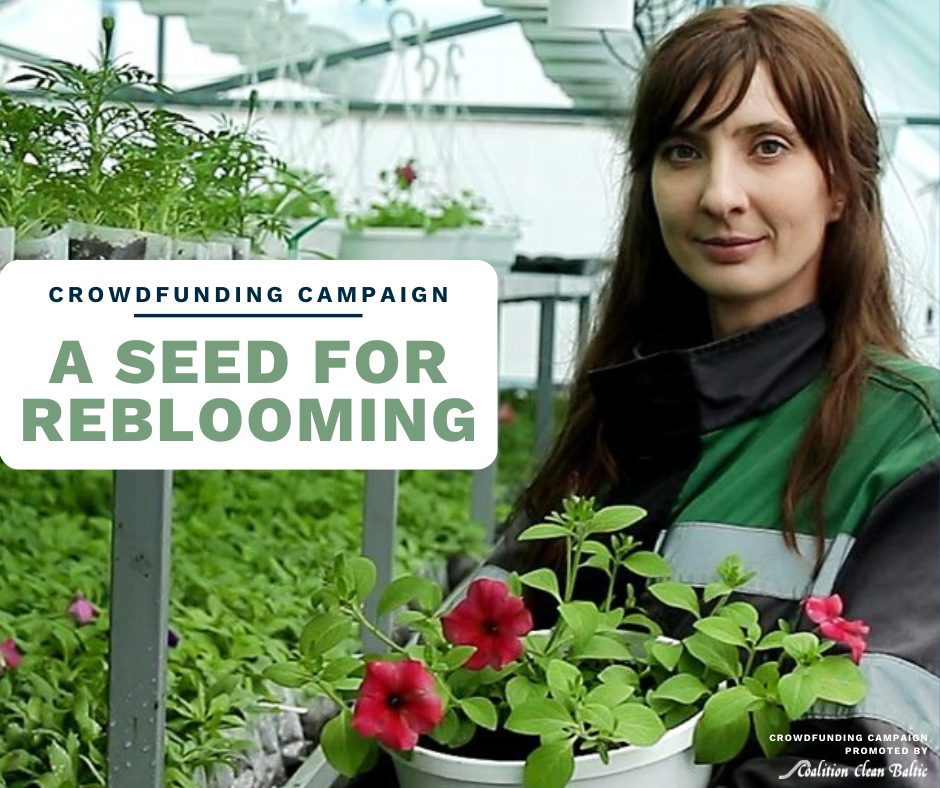A seed for reblooming - Crowdfunding campaign to renew Nina Radchenko's sustainable farm in Ukraine
The goal of this new crowdfunding campaign is to rebuild Nina's greenhouse and renew the sustainable production of flowers & vegetables destroyed by the war in Ukraine.

28 September 2022 - Today we launch the
"A Seed for Reblooming" crowdfunding campaign on behalf of Nina Radchenko, a sustainable Ukrainian farmer and landscape designer from Gorlivka, Donetsk Oblast.
After the Russian invasion started on February 24th, 2022,
the military shelling destroyed not only Nina's house but also her greenhouses and sustainable production of flowers and vegetables.
Nina and her husband, Ihor, were forced to move from Donetsk Oblast to a safer place in the Western Ukrainian town of Rivne, where they are planning to renew the activity and rebuild the greenhouse.
The project aims at the organization of an all-year-round vegetable production. Setting up greenhouse production will allow a wide range of high-quality and ecological products to grow. It will also enable to decrease in the price of the products for buyers and eliminate the factor of seasonality, enabling new workplaces.
Nature is our shared value and always will be. A seed for reblooming because we have always been working to promote organic and sustainable agricultural practices and stand for the right to exist in peace. The crowdfunding campaign is currently running on Go Fund Me and the goal is to reach 19.629 Euro (1) for:
- 1 Greenhouse from polycarbonate
- 25 Frame construction for additional ventilation
- Materials for building a basement
- Greenhouse heating
"You build, you work, you want to have someone to pass on to. When you start your own business, you must be ready for difficulties and not give up. The main thing is to remember that you want it and feel optimistic. It happens that people try, fail and immediately give up. But if you work, luck will find you", says Nina Radchenko.
ADD YOUR SEED: DONATE NOW
- To donate and support Nina's project, visit:
https://www.gofundme.com/a-seed-for-reblooming
- To learn more about the A seed for reblooming crowdfunding campaign, visit:
https://www.ccb.se/seed-for-reblooming
NOTES
(1) Installation, commissioning works and structure of the watering and lighting system will be carried out at Nina's own expense. Read more on the business plan.

